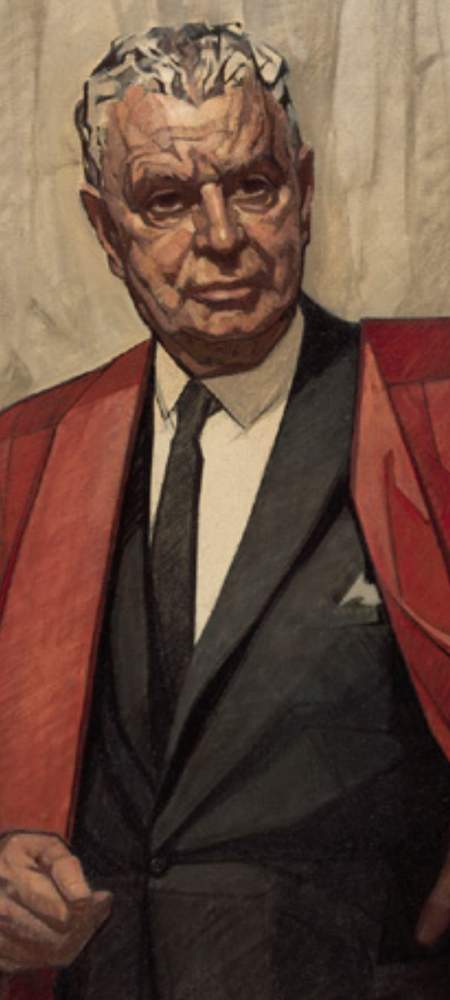Chapter
No
John Diefenbaker
Prime Minister Diefenbaker’s administration represented the last gasp of a dying strain of Canadian politics and nationalism. A lover of Britain who feared and distrusted the United States, his five years in power were erratic and eccentric — much like the man himself.
Raised in rural Saskatchewan to a family with German roots, “Dief” survived the Great Depression (1929-1939) as a successful small-town lawyer, where he perfected a highly theatrical, flamboyant style that would become his trademark in politics. Notoriously unlucky in elections, Diefenbaker ran unsuccessfully for all sorts of offices before finally entering Parliament in 1940, and becoming Conservative leader (on his third try) in 1956.
At the time of the 1957 federal election Canada had been under Liberal rule for 22 years. Through effective campaigning against the party’s scandals and arrogance, Diefenbaker won a narrow minority government, unseating Louis St. Laurent (1882-1973). As prime minister, he attempted to push the country back into a more pro-Commonwealth, anti-American direction, feuding with President Kennedy (1917-1963) and trying to divert more of Canada’s trade back to Britain.
Though grandiose in his rhetoric and vision, Diefenbaker was not much for day-to-day policy, and his administration faced growing blame for Canada’s increasingly weak economic performance — particularly a slumping Canadian dollar. In the realm of Cold War foreign relations, things weren’t much better. To this day, Diefenbaker’s term is often remembered mainly for his uncooperative actions during the Cuban Missile Crisis (1962) and his decision to destroy Canada’s promising Avro Arrow jet program, both for seemingly vain and petty reasons.
Dief routinely portrayed himself as the last guardian of Canadian sovereignty in the face of a hostile U.S. administration and a pro-American Liberal Party. When he lost reelection in 1963, he maintained it was the result of an American conspiracy, and remained an aggressive and outspoken backbench Member of Parliament — highly unusual for a former prime minister — until his death in 1979. Today there has been some effort among Canadian conservatives to revive Diefenbaker’s legacy and make him a symbol of respectable conservative rule before the long reign of Pierre Elliott Trudeau (1919-2000).
